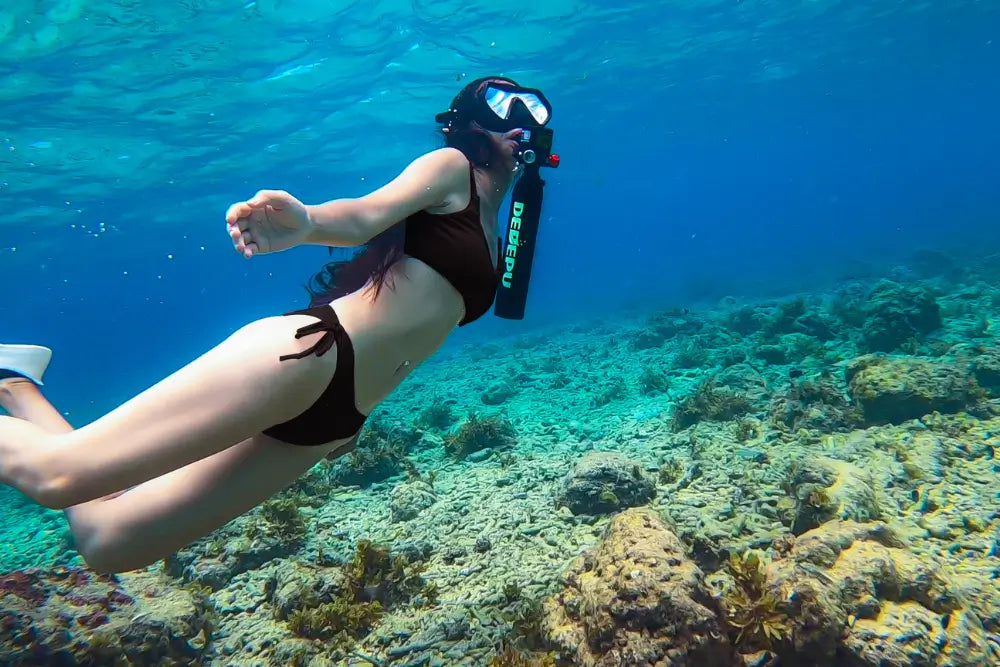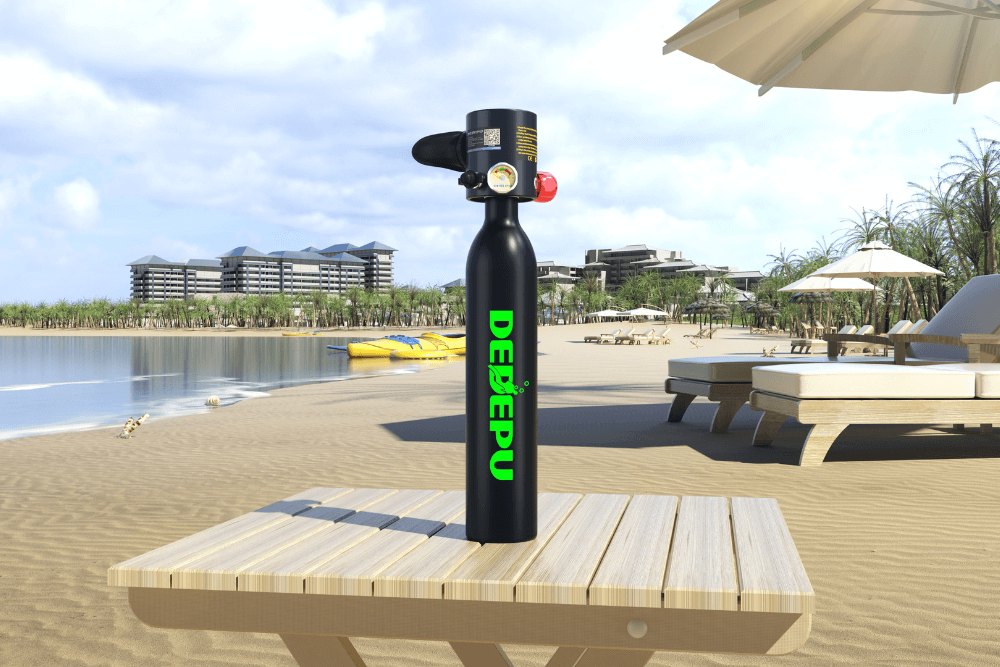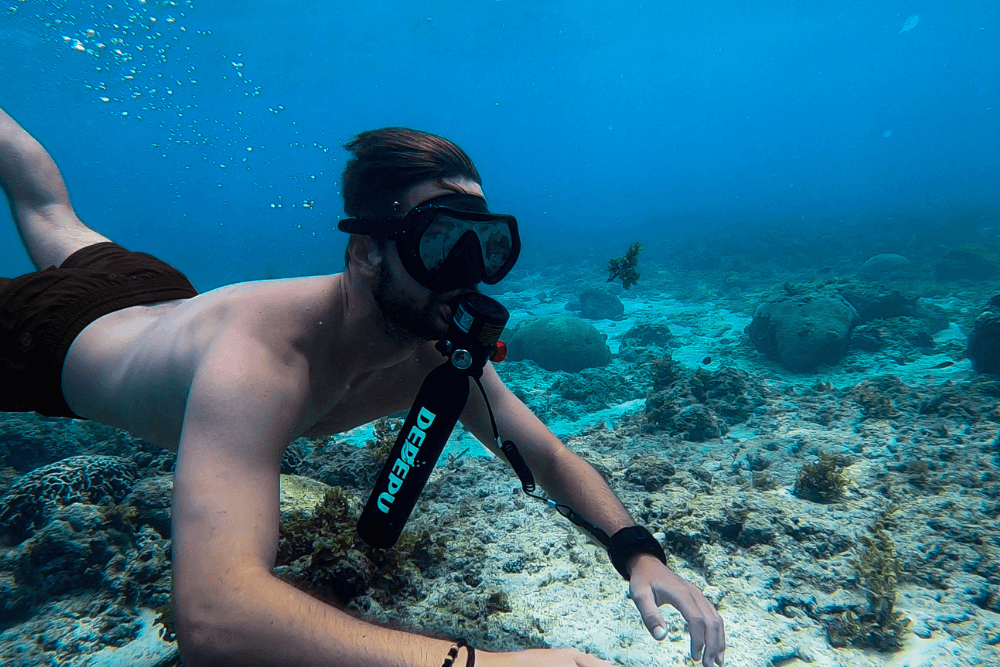A beginner Open Water Diver course typically spans 3-4 days, combining knowledge development (e-learning or classroom), confined water sessions (in a pool or calm sea), and 4 open water dives. Key safety skills like mask clearing (emptying water), buoyancy control (via breath and weight adjustment), and regulator recovery are progressively practiced. Essential equipment includes a mask, fins, regulator, buoyancy compensator (BCD), tank, and weights; rental costs approximately 30−50 per dive day. While comfort in water is vital, the swimming requirement is manageable: tread water for 10 minutes and swim 200 meters/yards. Proper instruction makes diving accessible.
How Entry-Level Courses Teach You
The most popular course globally, like PADI's Open Water Diver, uses a simple, proven recipe. Think about 30-40 hours total spread realistically over 3-5 days. It’s not crammed; it's carefully phased: You'll start with theory (online modules take 5-8 hours, classroom options run 10-15 hours), move to controlled pool-like settings for about 8-12 hours of skill practice, and finish with applying everything during 4 real ocean dives spread over 1-2 days, typically diving between 6 to 18 meters (20 to 60 feet) deep. While comfort in water is essential, you don't need to be an Olympic swimmer: you'll demonstrate treading water or floating for 10 minutes straight, and swim 200 meters (or 300 yards) without time pressure – no flippers allowed for that part! Over 98% of motivated students who start complete it.
The knowledge development phase happens first. Today, over 85% of students choose the eLearning option. This isn’t basic reading; it includes interactive videos, animations, and quizzes breaking down core concepts. Plan for roughly 5 hours of online work, usually done flexibly before meeting your instructor. If you prefer in-person theory, expect 10-15 hours in a classroom or shop, often split over 1-2 evenings. You must pass a final knowledge review covering things like physics (understanding how pressure changes affect air spaces – think ears and masks!), physiology (safe breathing rules!), equipment function, and critical safety protocols. Passing typically requires scoring 75% or higher, but instructors review 100% of the key safety answers. This ensures everyone grasps non-negotiables like never holding your breath and controlled ascents slower than 18 meters (60 feet) per minute.
Then comes the game-changer: confined water dives. This is where you get wet for the first time, usually in a pool or exceptionally calm shallow sea area no deeper than 5 meters (15 feet). Here, you'll spend 8-12 hours (often across 2-3 sessions) learning fundamental skills under direct instructor supervision with a maximum student-to-instructor ratio of 8:1, though 4:1 or 6:1 is far more common for better attention. You'll practice breathing underwater comfortably for the first 10-15 minutes without moving. Then, the real work starts. You’ll assemble and check your gear – BCD (jacket-like device), regulator system (providing air from the tank), weights, tank, mask, and fins. Mastery here means executing core skills 100% reliably, including clearing a flooded mask by exhaling through your nose (takes < 30 seconds), recovering a regulator (your air source) within 3 seconds if it falls out, controlled emergency ascents, and signalling basic needs to your buddy and instructor using standardized hand signals. A huge focus is developing basic buoyancy control, learning to adjust your breathing and use small inflate/deflate buttons on the BCD to hover effortlessly – starting simple bottom kneeling and progressing to mid-water hovering by session 3 or 4. It takes most students 2-3 confined water dives to feel competent. Repetition builds muscle memory.
Finally, you demonstrate everything in the open water dives. This is your checkout, applying skills in actual dive environments (ocean, lake, quarry). The global standard requires four separate open water training dives, each lasting approximately 40-60 minutes underwater. The first two dives usually stay shallower, between 6-12 meters (20-40 feet), focusing on repeating key confined water skills in a real setting, often with more exposure to minor currents and bottom composition variations. Dives 3 and 4 increase depth slightly, typically to the 12-18 meter (40-60 foot) range, introduce slightly more advanced skills like basic underwater navigation using a compass to swim simple patterns like a 50-70 meter square, and require planning/profile management like air supply monitoring (using a submersible pressure gauge showing tank pressure decreasing from around 200 bar / 3000 psi at start). You must successfully perform all core skills competently across these dives under direct instructor observation to pass. This phased move from pool to ocean builds confidence step-by-step, verifying competence at each level before the deeper "graduation" dives.

Managing Buoyancy and Gear Basics
Over 80% of new divers achieve stable buoyancy within 5-10 training dives, consuming 20–30% less air as skills solidify. Entry-level courses prioritize gear familiarity: assembling 8 core components (tank, regulator, BCD, etc.) in <10 minutes, pre-dive checks covering 24 critical points, and emergency muscle-memory drills executed in ≤5 seconds. A properly weighted diver (determined via surface float test with ~500 psi tank pressure) optimizes buoyancy control; overweighting by 2 kg/4.4 lbs increases drag by 15% and air consumption by ~25%. Dive computers, worn by 95%+ of certified divers, automate safety with ascent-rate alarms (max 10 meters/33 feet per minute) and no-deco limits. Real-time feedback trains neutral buoyancy to maintain depth within ±0.5 meters/1.6 feet.
Buoyancy control starts with precise weighting. During training, you’ll perform a buoyancy check: floating upright at eye-level with 50 bar/700 psi in the tank while breathing normally. Most divers need 4–6 kg/9–13 lbs with a 3mm wetsuit in seawater. Adding 1 mm of wetsuit thickness typically adds ~1 kg/2.2 lbs. Underwater, fine-tuning relies on your BCD’s inflator/deflator buttons. Short 0.5–1 second bursts adjust buoyancy minimally, crucial for hovering near coral. Instructors drill breath control: inhaling lifts you 0.3–0.5 m/1–1.6 ft, exhaling drops equal amounts. New divers often overcorrect, causing “yo-yo” dives wasting 30–50% of tank air; skilled divers hover using <5% BCD air adjustments per minute.
Gear proficiency begins with pre-dive checks (BWRAF) lasting ≤120 seconds:
- BCD inflates fully and deflates instantly (<3 seconds).
- Weights release with one hand.
- Releases (chest/crotch) open smoothly.
- Airflow confirms regulator inhalation effort <1.4 Joules/liter (barely perceptible resistance).
- Final oxygen tank pressure checks (starting 200–230 bar).
Regulator recovery drills mandate retrieving a dislodged mouthpiece in ≤3 seconds—90% of students master this in 3 pool-session attempts. Mask-clearing demands forceful nose-exhalation to empty 100–300 ml water within 2 breaths. Abandoned-mask swims reinforce navigating 15 meters/50 feet blindly using buddy contact, a mandatory certification drill.
BCD management integrates buoyancy and movement. The corrugated hose inflator requires 1–2 kg of downward force for button engagement. Overinflation risks runaway ascents exceeding 18 m/60 ft per minute—triggering dive computer alarms and embolism risks. Midwater stops (e.g., 3 minutes at 5m/15ft) with empty BCDs test micro-adjustment skills; deviations beyond ±1m/±3ft depth prompt remedial practice.
Skill Mastery Timelines & Equipment Lifespan
| Skill/Component | New Diver Proficiency Timeline | Failure Risk If Improper | Maintenance/Cost Impact |
|---|---|---|---|
| Neutral Buoyancy | Dive 4–10 (±0.5m stability) | Air waste (20–35% excess), reef damage (fines $500+) | None (skill-dependent) |
| Weight Calculation | Dive 2–5 (±1kg accuracy) | Overweighting: +25% air use, fatigue | Lead replacement cost: $8/kg |
| Mask Clearing | Session 2 (<10 seconds) | Panic (~70% initial failures), aborted dives | Mask seal lifespan: 2–5 years |
| Regulator Recovery | Session 1 (<5 seconds) | Breath-holding risks (lung barotrauma >10m) | Service interval: Every 100 dives/$120 |
| BCD Trim | Dive 5–15 (horizontal posture) | Drag (+40% swim effort), air trapping | Bladder integrity: 5–8 years/$400–700 |
| Ascent Rate Control | Dive 3–8 (<10m/min speed) | Decompression sickness (5–10% probability if >18m/min) | Dive computer calibration: ±0.3m accuracy |
Buoyancy’s Physics & Numbers: Water density (1025 kg/m³ seawater) demands exact mass displacement. A 12L aluminum tank (~1.3 kg negative when full) becomes ~2.4 kg positive at 50 bar, requiring 3 kg lead compensation. Trim weights offset gear imbalances: ~400g on upper tank bands corrects head-down posture. Poor trim increases drag coefficient by 0.8–1.2, slashing propulsion efficiency.

Course Structure and Practice Hours
Most entry-level courses (e.g., PADI Open Water) demand 35–40 total hours split across 3–5 days when done intensively. But 37% of learners opt for extended weekend formats spanning 2–3 weeks, balancing daily jobs. The course divides rigidly: 50% theory (≈15 hours e-learning/classroom), 30% confined water practice (≈10–12 hours pool training), and 20% open water application (≈8–10 hours across 4 ocean dives). Time efficiency hinges on pre-course prep: completing online modules (5–8 hours) before Day 1 saves 40% of onsite hours. Slow points? Buoyancy drills consume 25% of pool time, while mask-clearing mastery averages 3–5 dedicated practice rounds. Post-certification, 85% of new divers log 2–4 additional dives within 30 days to cement skills.
E-learning modules require 5–8 hours of screen time. These aren’t passive videos—interactive sections demand clicking through 3D gear simulations, calculating air consumption math (e.g., 15L/min breathing rate × 20m dive = 120L needed), and passing 5 knowledge reviews with ≥75% scores. Slack here? You’ll bleed 2–3 extra hours in makeup quizzes. Classroom alternatives run longer: 10–15 hours over 2–4 evenings, with instructors explaining concepts like Boyle’s Law (air volume halves at 10m/33ft vs. surface) and nitrogen absorption tables.
Pool sessions dominate the physical commitment. Expect 2–3 visits totaling 8–12 hours waist-deep, training in groups of ≤8 students. Each 2.5–3.5-hour session cycles through gear assembly (7–10 minutes setup/drill), skills rehearsal, and debriefs. Key time sinks:
Initial breathing acclimation: 10–15 minutes kneeling at 3m/10ft, controlling panic response.
Buoyancy workshops: 40–60 minutes per session learning micro-adjustments (e.g., 0.5-second BCD button taps changing depth by 0.3m/1ft).
Emergency skill drills: Regulator recovery (5–7 reps, <3 seconds each), full mask flood/clear (3 reps, <10 seconds).
Fail a critical skill? 1 in 5 students repeat 20–30-minute remedial blocks.
Four dives (each ≈45 minutes bottom time) split over 1–2 days, launching as early as 7:30 AM to catch slack tides. Surface intervals last ≥60 minutes for off-gassing. Briefings pre-dive consume 15–20 minutes, covering dive plans (max depth 18m/60ft, air reserve 50 bar/700 psi), navigation (swim 50m squares), and environmental hazards. Post-dive debriefs add 10–15 minutes per dive. Logistics matter—travel to offshore sites can add 2–3 hours roundtrip.
Learning Curves & Efficiency Hacks:
Online pre-work slashes 45% of instructor contact hours.
Hands-on gear prep (tank valve opening torque: ≥30 N·m) before pool days saves 8–12 minutes per session.
Peak physical timing: Morning dives (8–11 AM) see 22% faster skill mastery than afternoon slots.
Private/semi-private classes (student:instructor ≤2:1) reduce course duration by 30% (total ≈25 hours).
Fitness impacts time: A resting heart rate <70 bpm correlates with 17% lower air use, extending bottom time.
Skills decay rapidly. Gaps >10 days between sessions require 20–50% repetition time. Completing certification in ≤14 days has an 83% pass rate vs. ≤65% for fragmented schedules. The golden rule? 15 minutes of post-dive note-taking on air consumption (e.g., 150 bar used in 42 min = 3.57 bar/min) boosts retention 3× faster.
Of 100 starters, ≈95 complete confined water, ≈92 attempt open water, and ≈88 certify. Most dropouts occur during theory exams (weak physics grasp) or dive 1–2 (buoyancy frustration). Drill early and drill physical skills—every 10 minutes of focused pool rehearsal saves 1 open water re-do.
Fees, Equipment and Budgeting Tips
Learning to scuba dive costs 500–1,200 USD for most beginners, with 72% of this budget going toward course fees and mandatory gear. The global average for entry-level certification (e.g., PADI Open Water) is 550–750, but varies ±200basedonlocation—Hawaiicoursesrun2225–50daily,totaling100–200for a 4−day course.Optional costs like boat fees>(25–80/dive)or marine park taxes>(10–30)push budgets1590–300but eliminates40–$60 in rental fees and improves fit critical for safety.
The 550 median includese−learning access > (150–200),pool facility time>(50–100/hours plitamong 4–8 students),and 4instructor − ledocean dives>(75–125/dive). Beware " all−inclusive" claims : 6135–$65 /day.
Gear strategy defines your budget. Rent regulators/BCD/tanks initially (40–60/day), but buying mask/snorkel/fins immediately saves money. A quality low-volume mask (65–150) lasts ≥5 years—versus paying 8–15/rental. Avoid buying heavy gear until dive 10+: Regulators require $120 annual servicing (every 100 dives), and BCD bladders degrade after 500 dives.
Budget Pitfalls & Hidden Fees:
- Air fills: Tank refills cost 8–12 each after certification dives.
- Dive computer rentals: 10–18/day; purchasing pays off after dive #23 (avg. break-even).
- Insurance: 30–50/year for DAN coverage avoids $50,000+ hyperbaric treatment costs.
- Post-certification dives: Guided boat dives run 110–160/trip; shore dives cost $0.
Price Comparison: Owning vs. Renting Equipment
| Gear Item | Entry-Level Purchase | Daily Rental | Break-Even Use (Days) | Lifespan/Dives |
|---|---|---|---|---|
| Mask + Snorkel | 85–220 | 8–15 | 7–12 | 5–8 years |
| Fins | 65–250 | 7–12 | 6–15 | 500–800 dives |
| Wetsuit (3mm) | 125–350 | 10–20 | 9–18 | 200–300 dives |
| Regulator | 300–600 | 12–20 | 22–35 | 10 years/500 dives |
| BCD | 380–700 | 14–25 | 24–45 | 8 years/400 dives |
| Dive Computer | 270–500 | 10–18 | 20–35 | 5 years |
Three Proof-Based Budgeting Tactics
- Rent-to-Own Hierarchy: Prioritize owning mask/fins first (150±80 investment). Rent computers/regulators until dive 20+. Saves 180±50 in first year.
- Group Discount Efficiency: Courses with 4–6 students cost 12–18% less than private training. Shared boat trips slash per-person fees by 35%.
- Prepay & Save: Booking ≥90 days early locks 2023–2024 pricing, avoiding 5–8% annual inflation. Bundling course + accommodation saves 15–22% at resorts.
A typical two-tank boat dive runs 125±25 including weights/air. Shore diving cuts this to 6±2 (air fill only). Air consumption impacts expenses: Novices use 25–30 L/min, burning a 12L tank in 35 min; efficient divers (12–15 L/min) extend dives to 55+ min, reducing cost-per-minute 52%. Buying tanks (250–450) pays off after 55 fills—ideal for frequent shore divers.
Requirements and Readiness
Scuba certification mandates two concrete benchmarks: swim competency and medical clearance. Expect to complete a continuous 200m swim (any stroke, no time limit – 95% finish in 6-9 minutes) and 10-minute water tread/float without aids. Medical evaluations via the industry-standard 33-point RSTC form disqualify 3-7% of applicants; answering "yes" to conditions like asthma, diabetes, or heart disease requires a physician sign-off costing . Minimum age is 10 years, but 55% of certified divers start between 28-45 years. Physical demands include hauling 22kg (48.5 lbs) of gear for 20 meters and equalizing ears at 2m/6ft depth within 15 seconds.
The 200m swim is pass/fail – no time limits, but pacing matters. Most divers use breaststroke (energy expenditure: 10 kcal/min) to conserve stamina. Survival floating leverages natural buoyancy (75% body volume displaces 750N force) requiring minimal effort: 3-4 gentle sculls/minute maintains stability in 10°C/50°F to 30°C/86°F water. Instructors prioritize composure over technique; panicked breathing (>25 breaths/minute) fails 68% of candidates.
Medical readiness hinges on the RSTC Medical Statement, which triggers physician clearance for 13 critical conditions:
- Cardiovascular issues: Resting blood pressure >160/100 mmHg, history of heart surgery, or angina
- Respiratory conditions: Asthma attacks within 5 years, active bronchitis
- Metabolic disorders: Diabetes requiring insulin, hypoglycemic episodes (<70 mg/dL) within 1 year
-
Neurological concerns: Epilepsy, history of stroke
Physician evaluations typically include spirometry (FEV1/FVC ratio ≥80%), tympanometry (ear pressure ±50 daPa), and exercise ECG if over 45 years. Type 1 diabetics must demonstrate ≥6 months of HbA1c ≤7.5% and glucose monitoring underwater.
Gear Compatibility & Body Metrics
| Physical Factor | Safety Threshold | Failure Rate If Exceeded |
|---|---|---|
| BMI >30 | Buoyancy miscalculation | Air consumption +45% |
| Waist >110cm (43") | Weight belt slippage | Emergency ascent risk +32% |
| Shoe size >US 12 | Fin cramping | Propulsion loss 41% |
| Face width <14cm | Mask leakage | Flood rate 60% vs. 15% |
| Resting heart rate >90 | Air starvation | Bottom time -25% |
Ear equalization capability is non-negotiable. At just 2m/6ft depth (ambient pressure 1.2 ATM), pressure differences cause 87% of aborted dives without prompt clearing. Successful Valsalva maneuvers (pinch nose + 20-30 mmHg gentle blow) must occur within 5 seconds per meter descent. 18% of students initially struggle, learning Frenzel technique (swallow + tongue thrust) to pass.
Hydration impacts safety: dehydration (urine specific gravity >1.020) increases decompression sickness risk 300%. Drink 1.5L water daily for ≥48h pre-dive. Body temperature regulation is critical: Core temp drop to ≤35°C/95°F impairs cognition – 5mm wetsuits maintain ±1°C stability in 18°C/64°F water for 45 min.
Certification Statistics:
- Physician referrals add 14 days (median) to certification timeline
- DAN insurance – 97% of operators require proof
- Age-related restrictions: 10-14 year-olds max depth 12m/40ft; divers ≥65 need annual cardiac clearance
Real Talk: These checks prevent 83% of underwater emergencies linked to health/swim failures. Industry records show just 0.18 fatalities per 100,000 certifications when protocols are followed. Bottom line: 99.9982% safety isn't an accident – it’s engineered through these measurable benchmarks. Your honesty during screening directly dictates whether you’ll be exploring reefs or sitting in recompression chambers.





Laisser un commentaire
Tous les commentaires sont modérés avant d'être publiés.
Ce site est protégé par hCaptcha, et la Politique de confidentialité et les Conditions de service de hCaptcha s’appliquent.